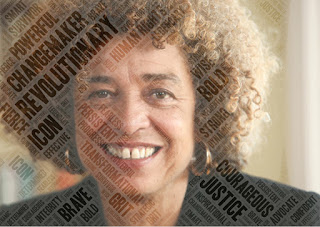Not a clash of cultures: Birmingham mayor clarifies remarks about Davis controversy’s origins
On Jan. 10, Birmingham Mayor Randall Woodfin issued a statement clarifying his earlier remarks regarding the controversy over the Birmingham Civil Rights Institute and its cancellation of the Fred Shuttlesworth Awards Dinner honoring Angela Davis, saying some in the local and national media “are misconstruing the crisis of leadership at the Birmingham Civil Rights Institute as a clash of cultures, ethnic groups, or races” and reiterating “it is not.”
Instead, he said, “The crisis of leadership at the Birmingham Civil Rights Institute represents a clash of values, wherein the institution responsible for stewarding powerful, poignant and respectful dialogue, has demonstrated that they do not value dialogue with residents of Birmingham and the public at large.”
Three members of the Institute’s board — board president Mike Oatridge, vice chair Walter Body and secretary Janice Kelsey — resigned on Jan. 9. Aside from the initial cancellation announcement, the Institute has not given any further explanations.
In his initial statement, Woodfin said the cancellation came “after protests from our local Jewish community and some of its allies” and before there was a chance at dialogue.
His Jan. 10 statement was to “clarify my own initial remarks to ensure that we can bring all voices to the table for ongoing dialogue.”
Saying he considers himself an ally of the Birmingham Jewish community, he said “Birmingham’s Jewish community is not monolithic in thought… In fact, African American and Jewish leaders in Birmingham have worked together to build bridges during some of Birmingham’s darkest times. I expect us to continue to do so.”
While he did not intend to suggest that the entire Jewish community was opposed to the award, “members of the community, Jewish and otherwise, were indeed vocal in their opposition” and “dialogue should have allowed for the full measure of discussion about the merits of the recognition by the Birmingham Civil Rights Institute, including supporters and dissenters of some of Dr. Davis’ positions.”
For transparency, he has asked the Institute for a release of all Institute board minuted from September to Jan. 5, a release of the initial official communication to Davis about the initial invitation as well as the “communications rescinding the invitation,” an apology to the community at large “for the poor handling of the process,” release of the award selection criteria and an invitation to “stakeholder organizations” to meet with the board.
He has received the September to December minutes, which are posted on the mayor’s office website, and has been reassured other steps will be forthcoming.
Citing his emphasis on transparency and accountability, “I implore and insist that every step be taken to restore confidence in the decision-making process and governance of the Birmingham Civil Rights Institute.”
The citizen-led Birmingham Committee for Truth and Reconciliation will host a free public event with Davis on Feb. 16, the original date of the dinner. “I welcome Dr. Davis back home and hope that her return to the City is one that helps further community conversations,” Woodfin said.
He also will announce “a series of conversations that will facilitate constructive dialogue around civil and human rights” starting Jan. 21. As the city where the civil rights battles were waged, “in the spirit of those that fought and died so that we can stand on these sacred grounds, I will ensure that every step is taken to preserve and protect our civil and human rights legacy of courageous dialogue,” he concluded.




